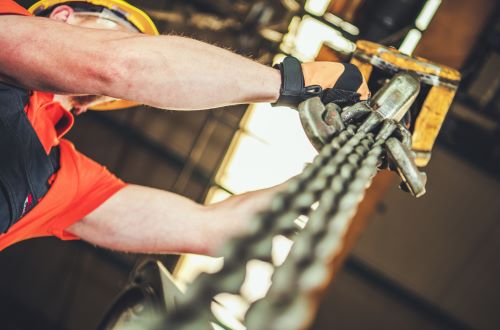
What Crane Operators Need to Know about the Pandemic and Certification

The current pandemic has been a confusing time for many workers. With information constantly changing, it can be difficult to stay up-to-date on current news regarding your career field, especially if you work as a heavy equipment operator. One thing that’s good to know is that during this time, operators of cranes have been deemed essential workers by the Department of Homeland Security.
This means that there are some things that crane operators are allowed to continue doing that you may not have considered, such as continue their education at places like West Coast Training and partake in testing to become a more certified and experienced worker. Here are some important things that crane operators should know about the pandemic and certifications.
Testing is Still Available
Despite so many things being on hold during the pandemic, your crane operator certifications and recertifications don’t have to be one of them. The Department of Homeland Security allows testing for these certifications to continue on so that when work restarts fully, workers are ready and able to come back to work.
Having your crane operator certification has never been so important, especially if you’re joining or rejoining the workforce after an extended break. Potential employers will be looking for workers to take on projects that have been delayed for months, and they’re going to want the workers they select to be qualified and ready to go at a moment’s notice. Having to explain that you lost your certification during the pandemic can cause them to skip over your application and choose someone who is more prepared.
Safety Protocols Are in Place
If you’re worried about how safe it is to pursue testing and certification as a crane operator, you should know that there are strict safety protocols in place. Computer-Based Testing (CBT) sites require staff members to wear masks, candidates and staff are asked to remain at least six feet apart at all times, and all tables, chairs, computers, and pencils are sanitized thoroughly between uses.
To ensure that no one shows up to their testing while feeling potential virus symptoms, candidates are sent short health questionnaires before arriving at CBT sites, and seating at those sites has been significantly reduced to maintain all of the previous guidelines. These safety protocols help to keep both the staff and test-takers safe while doing in-person testing.
It’s a Great Time to Gain More Certifications
One of the few benefits of having a gap in work is that it allows crane operators to take the time to become even more qualified than they previously were. Many crane operators have chosen to add more NCCCO certifications to their resumes, making them more appealing to their potential employers.
Having more than one NCCCO certification is something that can set you apart from dozens of other candidates who are eager to begin working after the pandemic. West Coast Training can help you become an even more skilled and qualified worker so that when work is available your chances of becoming employed are much higher.
